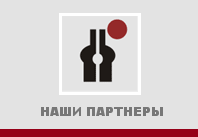"THE EUROPEAN
FUTURE OF THE BALKANS -
ECONOMIC AND SOCIAL ISSUES COUNT"
The European
Union has continuously taken very clear decisions regarding the future of the
(West-) Balkans. Not only have they been decided upon at the Council summit of
Saloniki in 2003, but also in the Parliament in its many resolutions and in the
Commission in its many communications. So everything should be clear and only a
question of time.
I
think that things are not as easy as they seem. On the one hand the EU could do
more to enhance the prospect of a European future to the Balkans and on the other
hand the countries of the region should and must do more to prepare themselves.
I do not want to say that our policies in South-Eastern Europe are not
successful. We managed many crises well and we can be proud of our actions. But
we still have no comprehensive overall strategy concerning the economic and
social development of this region. This is the reason why some of us proposed a
Ljubljana process for the region parallel to the Lisbon process within the
present European Union. We must increase the economic competitiveness of the
Balkan countries and at the same time tackle the enormous social problems.
Without such an economic and social programme we will never be able to combat
the nationalistic tendencies and ethnic strive which seem to have manifested
themselves in the countries of that region.
The
present Slovene presidency is a promising chance for that country and the
European Union to develop such a comprehensive and long lasting strategy. No
European country can afford to wait and thus must enhance its competitiveness
for "better" times. The improvement of the infrastructure, the strengthening of
education systems, and investing in research and development is not only
important for economically more advanced countries but also pivotal for the
Balkan countries. Nobody should loose time and the opportunities to work
towards the improvement of their economic and social welfare. In order to help
these countries we also need greater openness to its people, something that can
be achieved through the inclusion of a more liberal visa policy. The exchange
of knowledge and people is an important contribution to the development of all
our neighbours.
Europe
can and must help take these steps as it is also in our own interest. But the
main task must be undertaken by the countries and societies themselves. They
must overcome their traditional infighting, their ethnic divisions, and their
clear lines of between "us" and "them". They need to modernise their heavily
outdated political attitudes and systems. I do not want to repeat the famous
Clinton words from the first election campaign: "it's the economy,
stupid", but somewhat modified we could say: "it.s the economic and social
issues, which count and not the ethnic divisions". This message must be repeated
again and again. Having said that, I do not deny the significance of cultural,
ethnic and religious factors. On the contrary, one should not neglect these
issues because such neglect could potentially overlook existing tensions.
However, the aim of the "cultural" policies must be to reconcile different
propensities and to create mutual respect. Yet again, unemployment and poverty
reinforce nationalistic tendencies and hate speech and thus these two factors
should be the main target of our common policies.
Parallel
to that regional approach individual negotiations on the Stabilisation and
Association Agreements and accession to the EU must be continued. However, it
must be clear that the accession criteria have to be fully accepted which
include the Copenhagen Criteria and full cooperation with the International
Tribunal in The Hague. If countries fulfill these criteria they must be able to
proceed. In that respect Croatia has a big chance to conclude its negotiations
with the EU in 2009. As rapporteur of the European Parliament for that country
I would have wished for Croatia to have done everything to conclude the
negotiations already at the end of 2008. However, as so often some overriding
"national interests" such as the decision on the ecological fisheries zone,
superseded the utter importance of a faster negotiation process.
Furthermore
it is important that Croatia is ready to solve all its problems with its
neighbours. But it is equally important that the neighbours including Slovenia
are ready to help to overcome the existing issues. Arbitration or mediation by
a third party are the most helpful methods to solve outstanding problems
between neighbours. One should bear in mind that accession of Croatia to the
Union between 2011 and 2012 following the consent of the European Parliament to
the negotiated treaty and the national ratification processes in all member
countries would be the best sign to the whole region of the Balkans. It would
give new and continued hope as countries that have completed their home-work
can accede to the European Union.
Ljubljana, 24 April
2008
International
Institute for Middle-East and Balkan
Studies (IFIMES) - Ljubljana
Directors:
Bakhtyar Aljaf
Zijad Bećirović, M.Sc.











